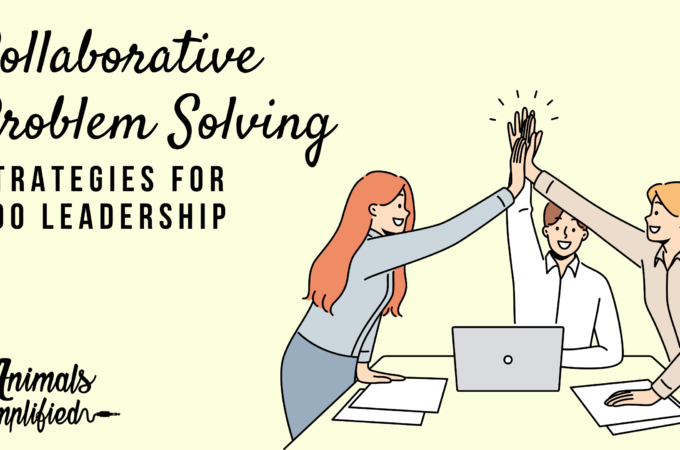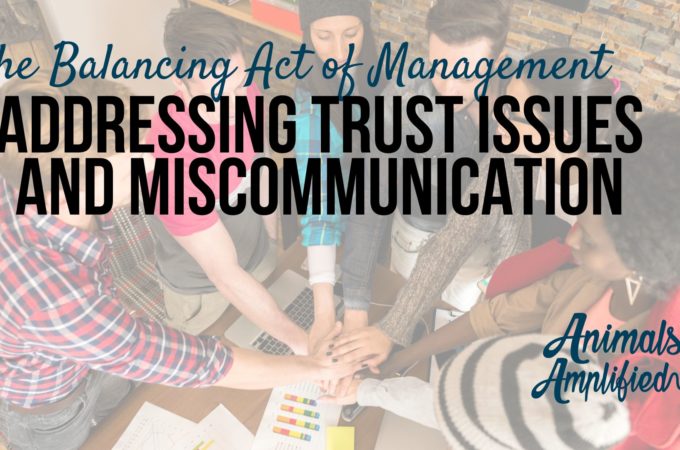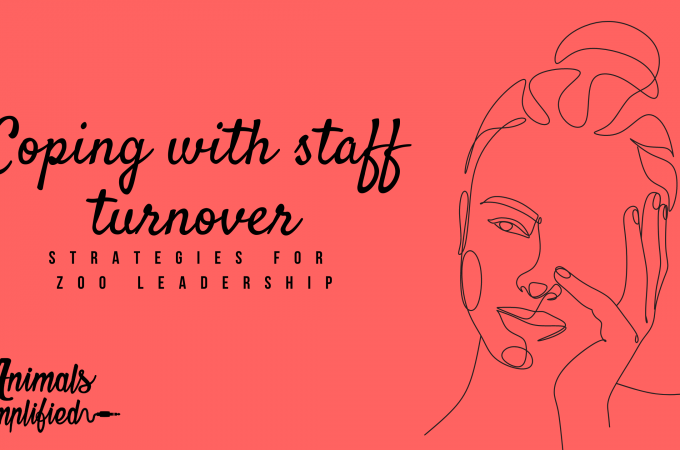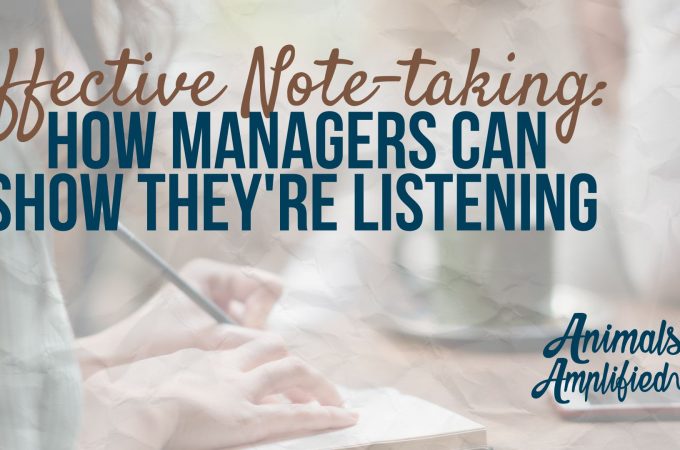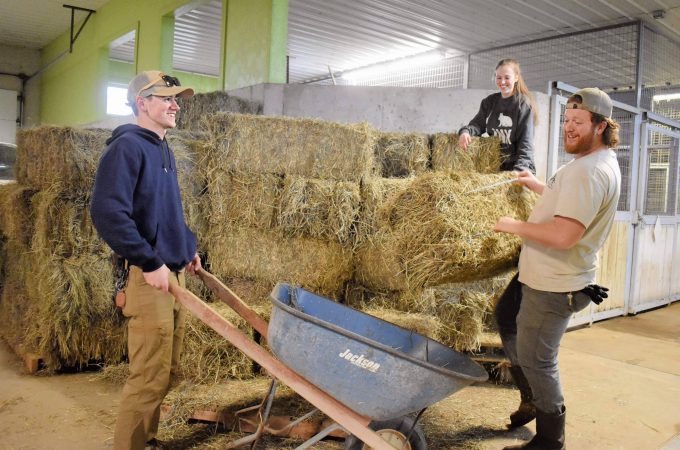
Breaking Free from Cognitive Distortions to Be a Better Zookeeper
Do you ever feel like nothing you do is right? Are you worried your boss will fire you over any mistake you make? Are you afraid to express your feelings because others might hate you? You might be stuck in some common cognitive distortions. This blog will discuss cognitive distortions, negative thought patterns or thinking traps. These patterns can significantly impact our mental health and happiness, but the good news is that you can hack your biology and overcome them.
What are Cognitive Distortions?
First, let’s define what cognitive distortions are. These are simply ways our mind convinces us of something that isn’t necessarily true. They’re like little lies and stories our brain tells us. They affect the way we behave and how we treat others. They can often lead to feelings of anxiety, depression, and low self-esteem. When I’m talking with keepers trying to communicate with their leadership and leaders trying to communicate with their teams, I hear so many cognitive distortions. Here are a few examples:
All-or-nothing thinking: This is when you see things in black and white, with no gray areas. You either see things as being perfect or a complete failure. Keepers often feel this way about approaching leadership with issues.
- “I can either suffer through it, or say something and get yelled at.”
- “I’m never going to get promoted, they don’t listen to me.”
You can spot these when you notice it’s an either/or situation. Nothing in life is ever that black and white, so look for the “and”.
Overgeneralization: This is when you make a sweeping generalization based on a single event. For leaders, I hear this almost anytime a keeper puts in their notice.
- “Everyone hates it here.”
- “They’re all going to quit!”
For keepers, it’s often a tactic used to make themselves heard, but it gets the opposite result.
- “He hasn’t eaten anything in day. We have to do something!”
- “They never shift, and this routine takes forever.”
Watch out for words like always, never, all, a lot, and everyone. These are common overgeneralizations and embellishments.
Mental Filter: This is when you focus solely on the negative and ignore the positive. For example, if you receive ten compliments and one criticism, you’ll only focus on the criticism. We do this so often with each other. We’re all human, and sometimes we’re short-fused, tired, or overwhelmed, and we don’t show up as our best selves. We’re only hurting each other if we only focus on the times that interactions with others didn’t go well. Start looking for things you appreciate about other people and record them. In other words, be a positive reinforcement trainer and focus on the good.
How To Escape Your Thinking Traps
Now that we know what cognitive distortions are, let’s talk about how to escape them. It’s important to be mindful of your thoughts and challenge them when they don’t seem accurate. For example, if you find yourself thinking, “My boss hates me. She never gives me any information I need,” ask yourself if that’s truly accurate. Can you think of an example where she has given you information?
Once you’ve recognized a negative thought pattern, it’s time to reframe it. This means changing your thought to something more accurate and positive. For example, instead of thinking, “My boss hates me. She never gives me any information I need,” you could reframe it to “She does share some information, but I need more information. She might just be busy and dealing with a lot. I’ll have a conversation with her.”
To keep yourself in a mindset to beat these cognitive distortions and biases, it’s important to keep on top of your thoughts. Here are some tips to help you reframe your thoughts:
- Practice gratitude: Make a daily habit of listing things you’re grateful for. This will help shift your focus to the positive. I keep a notebook in my nightstand and write down all the best parts of my day each night. Some people use a planner and write their list daily with their schedule and to-do lists, and some share with their families each night. This gets me out of my catastrophic thinking traps.
- Challenge negative thoughts: When a negative thought arises, ask yourself if it’s accurate. If it’s not, reframe it to something more positive. This can be a challenge, and sometimes it might help to ask someone else to help. You can also ask yourself the question, “Why would a perfectly reasonable and sane person do that?” I have a whole lesson on this in my Be A Better Keeper Course, and we cover it in the Effective Communication Workshop.
- Surround yourself with positive people: The people we surround ourselves with can greatly impact our thoughts and emotions. Surround yourself with people who support and uplift you. This is a common challenge for zookeepers. We often work together, live together, and hang out together, and it’s very easy to start venting and complaining about work. Change your friend group if you have to, and hang out with people who will challenge your negative thoughts with you.
- Practice self-care: Take care of your physical and emotional well-being. This can include exercise, good nutrition, and spending time doing things you enjoy. Zookeepers are notorious for overdoing it, putting their animals and work before their self-care, and pushing themselves to burnout. If you’re going to have the mental stamina to challenge your thinking traps, you’ve got to take care of yourself.
Remember, you’re not alone in this, and you have the power to change your thoughts and emotions. If it’s something you struggle with check to see if your facility has an Employee Assistance Program that might help or click the chat button in the corner of the page.
Book a call with LynnLee if you need help reframing your cognitive distortions or fighting your thinking traps.
Communication Strategies for Zookeepers: Avoiding Bias and Distortions
As a former keeper, I understand the importance of avoiding bias and cognitive distortions to effectively communicate with animals, fellow zookeepers, and the public. I was heavily affected by negativity and cognitive distortions in the middle of my career. I even applied to a college program to learn how to become an ultrasound technician because I was so miserable at my job.
One of the most effective ways to avoid these thinking traps is through cognitive behavioral therapy (CBT) techniques. CBT helps to identify and challenge negative thought patterns that can lead to cognitive distortions, allowing zookeepers to communicate more effectively and build stronger relationships with the animals they care for. By practicing these thinking traps CBT techniques and regularly assessing their communication strategies, zookeepers can better understand and meet the needs of the animals in their care while building trust and positive relationships with their colleagues and visitors. Let’s talk about two CBT techniques.
Unraveling Cognitive Distortions
It’s not uncommon for zookeepers to fall into the trap of making assumptions about what their leadership thinks, says, or does without actually having a conversation to find out what’s going on. This can lead to misunderstandings, miscommunications, and strained relationships between the zookeepers and their leadership.
For example, a zookeeper may assume that their leadership doesn’t care about animal welfare because they haven’t received a response to an email they sent about a concern they have. They may then start to feel resentful towards their leadership, which can impact their work performance and overall job satisfaction.
Using a CBT technique like unraveling cognitive distortions could have helped this zookeeper. They would have been able to identify a thinking trap and then take action to challenge it. This would likely mean taking the time to have a conversation with their leadership. They may have found out that their email got lost in their inbox or that they are already addressing the concern in another way.
Assume Best Intent
To avoid making assumptions, zookeepers should practice effective communication strategies, such as active listening, clarifying questions, and expressing their own thoughts and feelings in a clear and respectful manner. If we’re going to improve the culture in our industry, we have to be willing to have open and honest conversations with leadership, express concerns, and ask for clarification when necessary. By doing so, zookeepers can develop a better understanding of their leadership’s perspectives, goals, and priorities and work together to provide the best possible care for the animals in their care.
By avoiding cognitive distortions and thinking traps and practicing effective communication strategies, zookeepers can build strong relationships with their leadership and improve the quality of care they provide for the animals they care for. It’s important to remember that assumptions and misunderstandings can easily arise in any work environment, but with the right communication strategies, they can be avoided or resolved positively and respectfully.
Cognitive Distortions: Don’t Let Them Erode Your Relationships
As a zookeeper, it’s important to recognize the impact of cognitive distortions on our relationships with animals, colleagues, and visitors. Negative thought patterns, such as “mind-reading” or “black-and-white thinking,” can lead to misunderstandings and erode the trust and rapport we’ve built with those around us.
To avoid falling into these thinking traps, it’s crucial to practice self-awareness and challenge these cognitive distortions when they arise. Spend some time journaling, reflecting, and challenging your negative thought patterns. Ask yourself if your assumptions or judgments are accurate or if there are other, more realistic ways to interpret the situation.
By actively overcoming cognitive distortions and practicing effective communication, zookeepers can build a positive and fulfilling culture for themselves and those around them. You can lead from anywhere and overcoming bias, and distortions will ensure you are someone others want to follow. Your positivity will impact your team and your animals.
Cognitive distortions can have a profound impact on our lives, including our relationships with others, our work performance, and our overall sense of well-being. As zookeepers, we must recognize these thinking traps and practice effective communication strategies to avoid misunderstandings and build strong relationships with the animals, colleagues, and visitors we work with.
For more on thinking traps and automatic negative thoughts read our blogs.

